Unforgettable meetings with the cast of Guillermo del Toro’s ‘The Shape of Water’
Los Angeles — What better place to meet director Guillermo del Toro and his “The Shape of Water” cast but in the magical and romantic city of Venice, Italy. It was the first time we saw the film and met the cast.
The film, which is about a mute worker in a high-security government laboratory befriending a captured sea creature in 1962 Baltimore, was not only a Venice favorite at the main competition section of the 74th Venice International Film Festival — it also bagged the much-coveted Golden Lion award for Best Film in the competition.

The fantasy drama film, written by Del Toro and Vanessa Taylor, stars Sally Hawkins, Octavia Spencer, Richard Jenkins and Michael Shannon and has award-winning composer Alexandre Desplat do the music.
The second time we met the director and the cast, we sat with them again at the Four Seasons Hotel in Beverly Hills.
Below are excerpts of our conversations with them:
Sally Hawkins (“Elisa Esposito”):
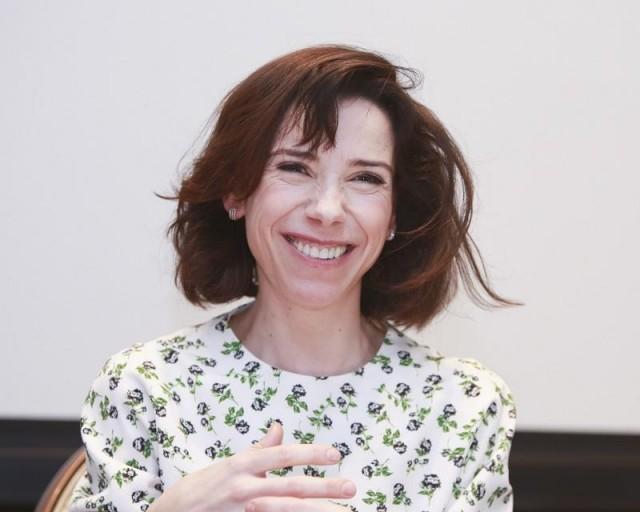
On Guillermo del Toro’s comment that the film would not have been done if he did not have Sally Hawkins as Elisa, the mute worker…
“That’s a beautiful thing to say. I think this whole film couldn’t work if it wasn’t for Doug Jones (the Amphibious Man) being so incredibly transformed. He has the shape shifter ability and he’s beyond words. It’s a lovely thing for him to say. It just felt like…so delicate, this film. And Elisa’s so delicate, her energy.
It is like a vibration. It felt like the most ultimate love story and love scene in the way it was just so sensitively done. Nothing felt gratuitous or exploitative. It was just natural. It was falling in love but not with a monster. I can’t see that. He’s a god and this incredible, beautiful presence in the way Doug expresses himself. I never saw Doug; I never saw his mannerisms or gestures. Just had to be there and fall in love and exist with him. It just felt like a huge honor and a gift. When you receive a script I’m always, oh god there’s so many words, how do I make them fit my mouth and make sense?”
On what love means to her: “Love is limitless and when you’re in love, it’s ever expanding and it’s infinite. There is no greater force in the world than love and the way it’s able to transform people.
"Guillermo has that, he has that passion and he inspires that in everyone. The love on the screen, the love on the set, he vibrates with it. He’s not afraid of it. There’s so much fear around expressing love. He has love of cinema. He has love of the people he’s working with, his art. You feel like a kindred spirit. He has that with everyone he works with. When you’re growing up, you feel ashamed of expressing it and yet no, I don’t feel any shame of expressing it.
On what she is like when she is not working: “I’m quite a home person. I don’t really like parties. I can’t hear because I’m down there; I’m covered in hair. I don’t drink so I’m really boring. I’m really boring. I’m renting a place in London. I’m looking to move out of London with that traffic, where there are a bit more trees. I socialize with my friends. I like quiet time.
"This business is so loud, press and, not that you’re loud, but the exposure it’s quite a lot for a human. It’s always important to have quiet time. You can’t have it enough. I am trying to meditate. I love TV. I’m not really dull. I like talking with trees. I like TV box sets. When I get really into a show, I have to consume it all. There’s such great TV on Amazon and Netflix. But there’s so much to consume. But also it’s great to be quiet with your own thoughts.”
Octavia Spencer (“Zelda Fuller”)
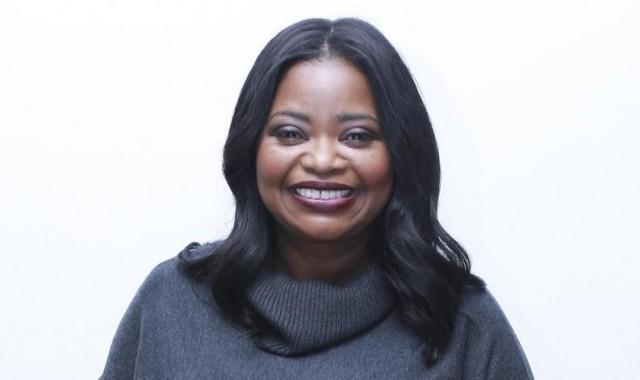
On playing a maid in ‘Help’ and a maid in NASA in this movie: “I don't have a problem playing a woman who is a maid or a woman who is a janitor if it's a character that is completely fleshed out. What I love about Zelda is that she's completely fleshed out.
"Guillermo created all of these characters and we get to see them in their own little worlds. If you were to take Zelda's scenes out, you would have a mini movie that's just about Zelda. So I don't have a problem with what the person does for a living as long as the characters are fleshed out. Now that doesn't mean Hollywood that I want to be offered every janitor role and every maid role written but they have to be well-written. But, yes, I think there could be an infusion of it because Hong Chau, another woman of color, is a maid (in “Downsizing”) and you have Mary J. Blige. So there's a theme that we need to get away from but I don't actually shy away from it playing it either obviously.”
On what would she not put up with a man: “I like take-charge men but if I ever feel like I'm being not heard in a relationship, that's a problem for me. So I like men who take charge but also who listen so I wouldn't put up with that like if everything was one-sided unless it was always on my side. I would have a problem with it.
"Honestly, what I love about Zelda, what I found refreshing about playing this character even though I played a woman from that era three times — I played a maid and then a woman who works at NASA and like you said a woman who's a maid at NASA this time — it's the first time that I didn't have to play those circumstances. I got to be like every other woman who complains about her relationship and that felt very contemporary. So it's a full boat for me. I'm really excited about it.”
Richard Jenkins (“Giles”)
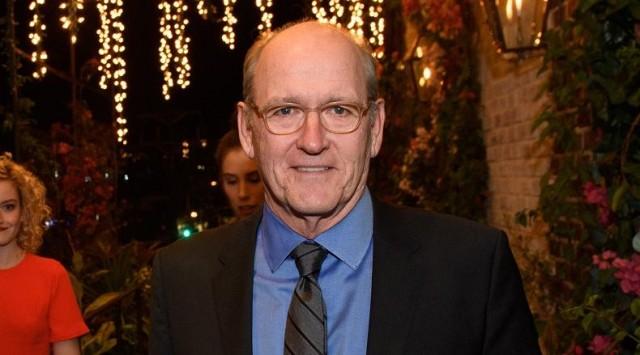
On the song that would best represent your life, if life were a musical:“I have one and it’s not a classical song yet. It’s ‘Another Day of Sun’ from ‘La La Land’. I say that because I live that. I’ve been out here. It was the sunset, the evening, that magic hour. No matter how depressing your life is, and your career is going, that time of day it all goes away. I love that album. I have it. Because I’m an actor, and also the movie is about finding yourself as an artist, that’s what it’s about. When she does, she becomes successful. When she admits the art in herself that she’s responsible for her own creation as opposed to trying to be what others want her to be. But that song, I think about it, I have it on my IPhone. I have the whole score on my IPhone. But it’s not quite a classic.
“Another song is from ‘Oliver’ and it’s ‘As Long as He Needs Me’ because it’s so beautiful and yet it’s so sad. It’s about someone who has no one in her life, nothing, but Bill Sykes who beats her. She’s saying, don’t tell me how to live my life. That’s what I have and you don’t understand. It’s so sad. The tune itself is just beautiful.”
On his relationship to water: “I was a competitive swimmer when I was in high school and college, so I’ve been in the pool most of my life. I swim now. I swim five times a week when I’m home. Here it’s hard. The pool here is about as big as this table.
“But yes, I love the water. I feel at home in the water. I had to do a stunt once, a couple of years ago in a series, ‘Berlin Station’, where I had a nightmare I was drowning in my office that was filled with water. I had to swim. It was ten feet of water. I had to try to get out of the ceiling. I couldn’t get out, the door was locked. I should have been terrified but I wasn’t. It was like being at home. I love the water.”
Michael Shannon (“Col. Richard Strickland”)
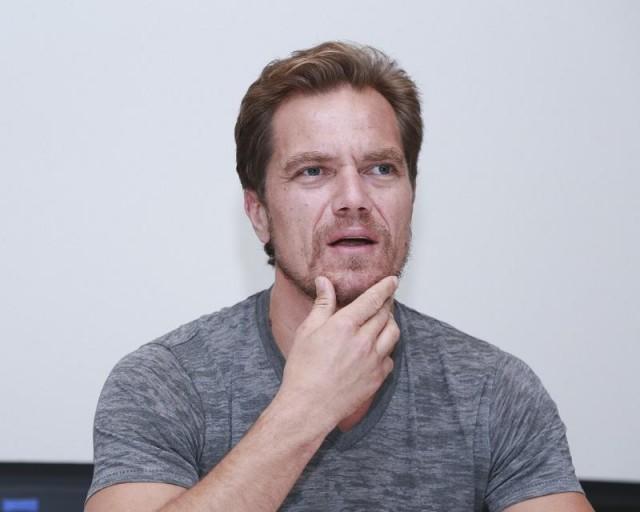
On moments in his life that he felt powerful and powerless: “It's dangerous to believe that you're powerful. I believe that power comes from humility. My power, my ability to do what I do is based on the fact that I know no matter how much I do it, I always have more to learn and that I can always get better. It's foolish for people to believe that they are powerful.
“Now having said that, sometimes people find themselves in positions I guess for the sake of civilization we must have leaders. Otherwise, it would just be anarchy. But I would never sign up for that. That doesn't suit my skill-set. It comes down to when you're at work sometimes you're working on something and you feel a good collaboration and that your opinion is important to the director and stuff and sometimes you don't. That would be the biggest instance of feeling powerful or powerless in my life.”
On how music helps him as an actor: “I listen to music a lot. Mostly when I'm doing theatre; not so much on film sets. Music is a huge inspiration for me. I started playing music before I started acting. When I was a little boy, I took piano lessons. I was in the orchestra. I played the bass and the viola. I was in the jazz band in high school. To this day, I listen to music if I'm at work or if I'm washing the dishes. I just I can't live without it.”
Alexandre Desplat (Music)
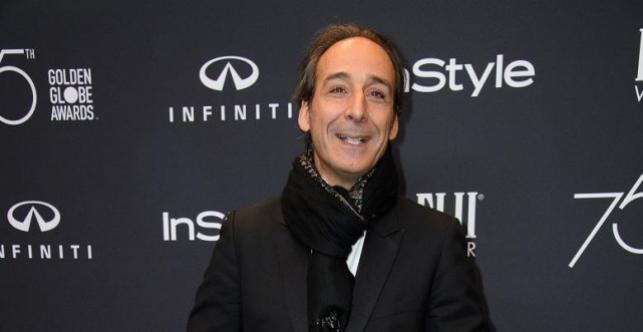
On writing music for hearing-challenged people: “It's interesting you say that because in 2002, I wrote the score of a French film by Jacques Audiard called ‘Read My Lips,’ ‘Sur Mes Levres.’ It was the story of a deaf woman who works in an office and is being patronized and underestimated by the colleagues.
As we had already done three, four movies together, before shooting the director said, 'there won't be any music in this film because she's deaf'. I said what? So if she was blind there would be no images then and he said no, but I think we shouldn't have any music. Okay, all right, it's your decision. Then he shot the film. He went to the editing room and he called me and said hmm I think I made a mistake. Interestingly enough, it's the first movie where I had to think about silence.
“Of course, we all know that John Cage thought a lot about how to do silence in music and there's always this challenge that silence and pauses in music are important. But how do you do it in cinema? I actually wrote a melody for strings only that I suppose is silences. So there's a phrase and stops and a phrase and it stops. It respects the silence. It doesn't fill the room with noise sonic frequencies. If you listen to my orchestrations, I was talking about Mozart but Mozart is the only composer I can think of where his music is very transparent. You hear everything. It's never a thick block of instrumentation. I've always enjoyed that.
“It's something I like to do when I orchestrate my music. I like it to be very clear that every line can be heard and not in big, big blocks where everybody plays the same thing. You hear flute. It's gone. You hear trumpet. It's gone. It's very challenging for the musicians so that movie was a big opening because when Peter Webber was working on finding a composer for ‘Girl With The Pearl Earring’ where silence is so important because the painter in his atelier wants silence and things not to be moved and everything has to be cautiously kept where it is, he couldn't find a composer.
“He saw that movie and he heard the score with the silence. He said ah, that's what I want. I want silence in my film which makes of course no sense when you're looking for a musician but he wanted silence. That's how I got into this film because here I could play with silence. So now the other challenge is how do you get the voice to somebody who is mute. But actually in ‘Girl With The Pearl Earring,’ Greet, the main character, doesn't talk. She watches. She listens. She watches. Funny but that's exactly what Guillermo says when he is asked what do you ask to an actor. He says I want an actress to be able to listen and to watch. So what I got from this story I was trying to find a way of respecting the silence of the unspoken and bring their voice out. That means that you have to also think about the psychology and the way their character is evolving through the film and their torments, their passions, their moments and how the music can capture them.” — LA, GMA News




